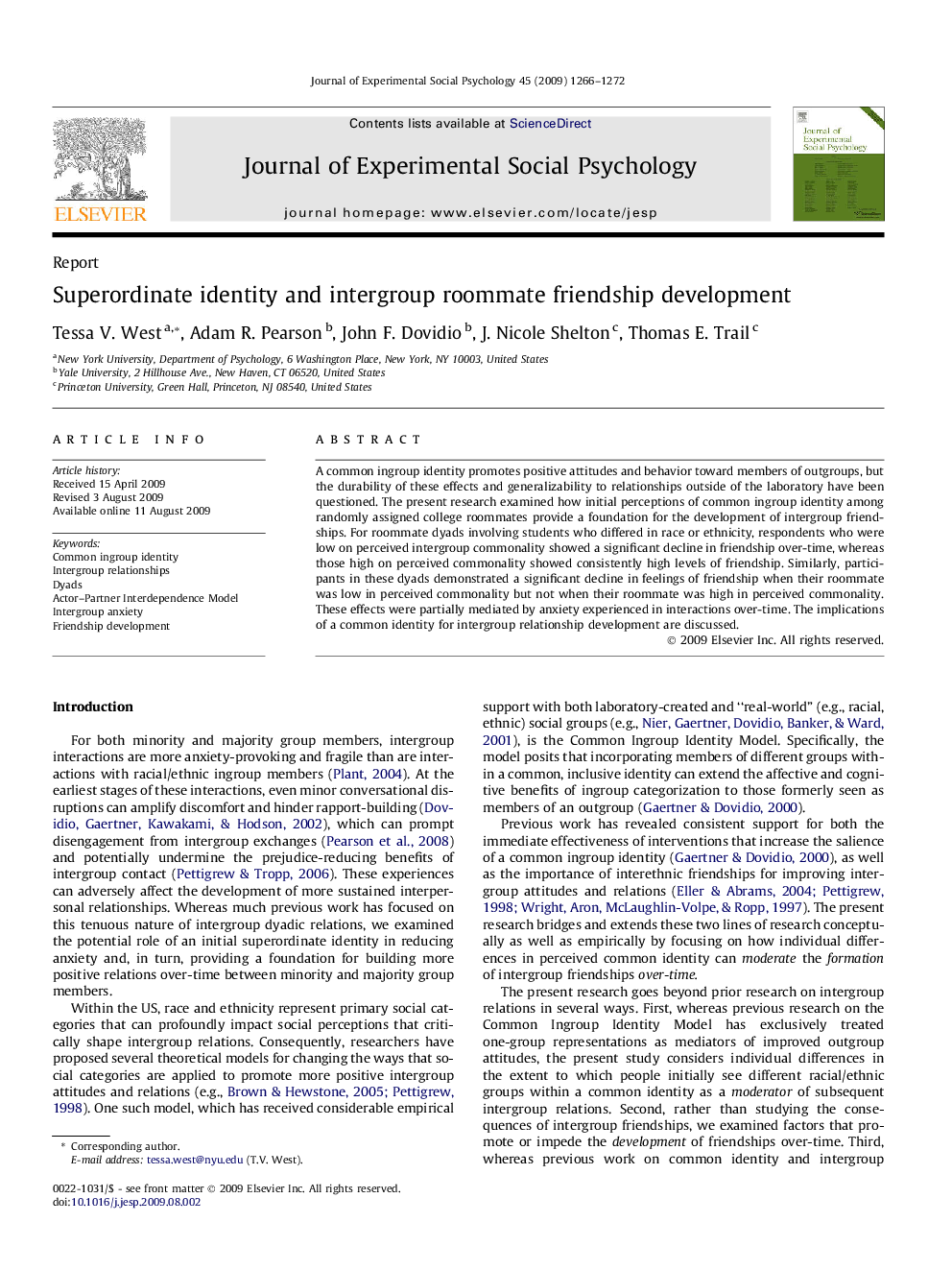| Article ID | Journal | Published Year | Pages | File Type |
|---|---|---|---|---|
| 948737 | Journal of Experimental Social Psychology | 2009 | 7 Pages |
A common ingroup identity promotes positive attitudes and behavior toward members of outgroups, but the durability of these effects and generalizability to relationships outside of the laboratory have been questioned. The present research examined how initial perceptions of common ingroup identity among randomly assigned college roommates provide a foundation for the development of intergroup friendships. For roommate dyads involving students who differed in race or ethnicity, respondents who were low on perceived intergroup commonality showed a significant decline in friendship over-time, whereas those high on perceived commonality showed consistently high levels of friendship. Similarly, participants in these dyads demonstrated a significant decline in feelings of friendship when their roommate was low in perceived commonality but not when their roommate was high in perceived commonality. These effects were partially mediated by anxiety experienced in interactions over-time. The implications of a common identity for intergroup relationship development are discussed.
